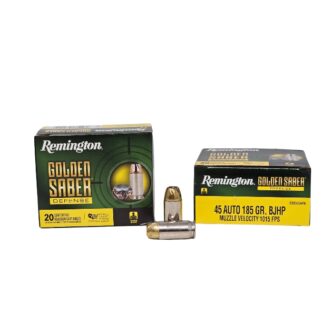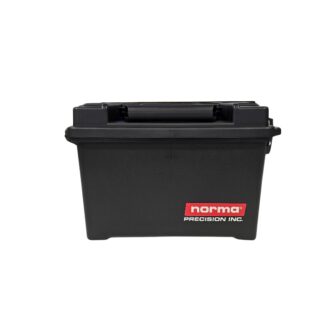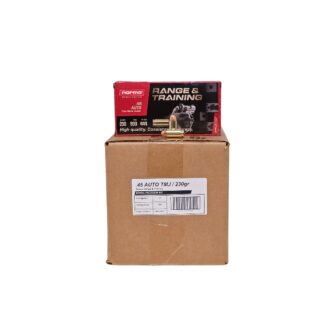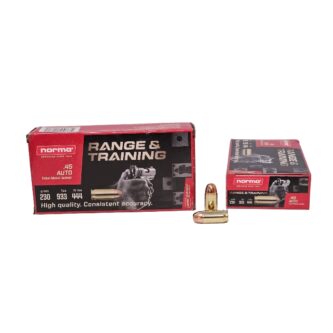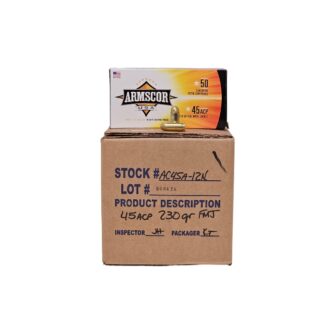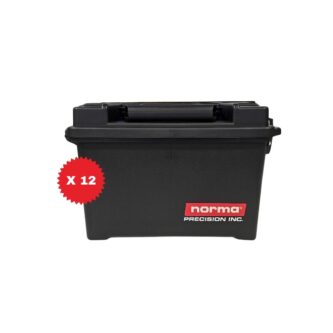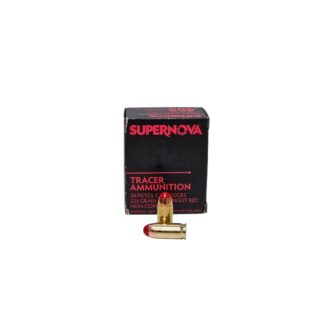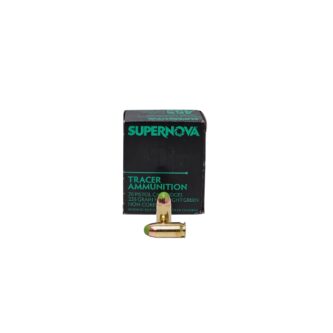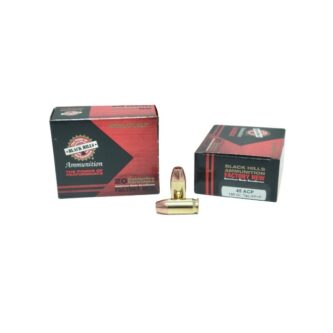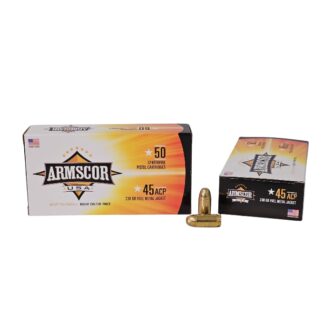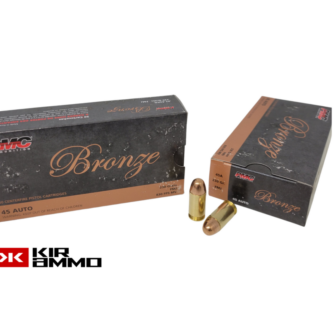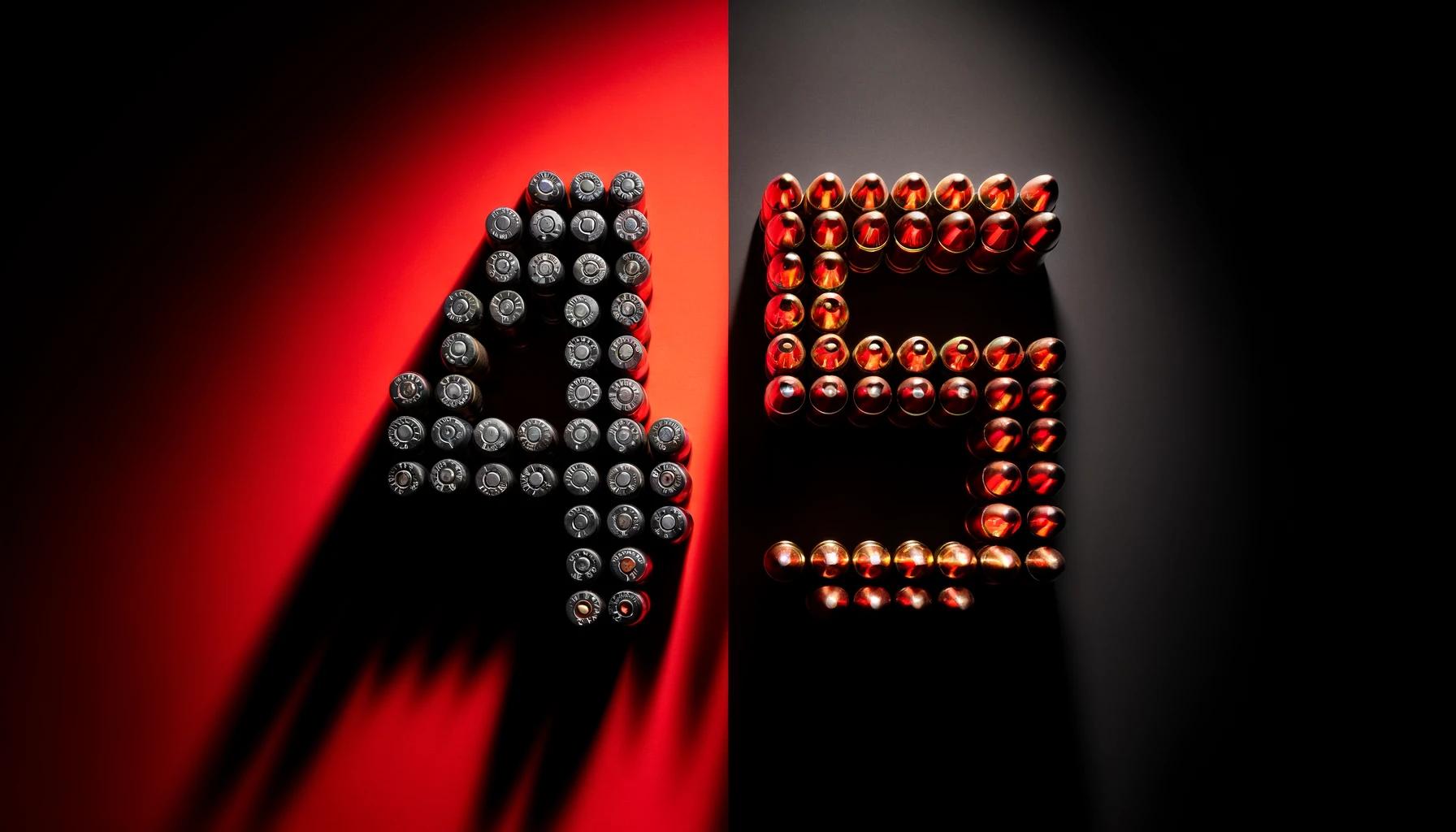
The .45 ACP cartridge is a cornerstone of the firearms world, renowned for its stopping power, reliability, and storied history in both military and civilian use. Originating from the late 19th century, the .45 caliber has evolved into one of the most popular and respected ammunition types, especially prominent in the form of the .45 ACP (Automatic Colt Pistol). Its enduring relevance in modern shooting disciplines, from self-defense to competitive shooting, speaks volumes about its capabilities and the affection held for it by gun enthusiasts.
This FAQ is designed to serve both beginners and seasoned shooters by addressing a wide array of questions about .45 caliber ammunition. Whether you’re curious about the ballistic advantages of the .45 ACP, its comparison to other calibers like the 9mm or .357, or its suitability for specific scenarios like home defense or hunting, this guide aims to provide clear, comprehensive answers. We will explore technical aspects, practical applications, historical context, and much more.
For those looking to deepen their understanding of this powerful caliber, or perhaps considering a .45 ACP firearm as their next purchase, this FAQ will equip you with the knowledge you need to make informed decisions. From its storied past to its modern-day applications and everything in between, let’s dive into the world of .45 ACP ammo and uncover why it remains a favored choice among shooting aficionados around the globe.
Great Deals on .45 ACP Ammo
FAQ on .45 Caliber and .45 Caliber Ammo
The .45 ACP (Automatic Colt Pistol) and .45 Colt (often called .45 Long Colt) differ primarily in their origins and the firearms they are used in. The .45 ACP was designed in 1905 for use in the Colt semi-automatic pistol, and it is known for its shorter, rimless cartridge, which is suited for use in semi-automatic firearms. The .45 Colt, developed in 1872 for the Colt Single Action Army revolver, has a longer and slightly more powerful cartridge with a rimmed case, making it suitable for revolvers and lever-action rifles.
.45 ACP handguns are known for a recoil that is generally considered stout but manageable. Of course, the term “manageable” depends on the shooter. The .45 ACP, due to its lower velocity compared to smaller calibers like the 9mm, often delivers a slow push rather than a sharp snap, which some shooters find easier to manage. In comparison, the .45 Long Colt, particularly when loaded to its original or higher specifications, can have a more significant recoil, especially noticeable in lighter revolvers and might not be manageable for new shooters. As always, it is important to shoot with reasonable expectations and under safe conditions.
As with most .45 caliber ammunition, the .45 ACP is highly regarded for self-defense due to its large bullet diameter and the resulting larger wound channels. It is believed to be effective in stopping threats due to the significant impact and energy transfer, even if the bullet does not expand upon impact. The relatively lower velocity of .45 ACP reduces the risk of over-penetration, making it a safer choice in urban environments.
The .45 ACP is generally considered less ideal for hunting because of its lower velocity, but it can be used effectively (probably overkill) for small game and varmint control. It isn’t recommended to shoot spiders with your .45, but you can if you really hate spiders! Other types of .45 caliber rounds, particularly the .45 Long Colt, are suitable for hunting medium to large game. The .45 Colt can be loaded to higher power levels, suitable for deer, feral hogs, and even bigger game like elk, when loaded with heavy, deep-penetrating bullets.
Some of the best .45 ACP pistols on the market include the Colt 1911, known for its historical significance and widespread use; the Glock 21, which offers high capacity in a reliable package; the SIG Sauer P220, known for its accuracy and build quality; and the Smith & Wesson M&P45, which provides ergonomic design and versatility. Each of these models offers different features that might appeal to different types of shooters, from those looking for classic designs to those seeking modern tactical features.
.45 ACP is often considered to have superior stopping power compared to 9mm due to its larger bullet diameter and the heavier bullets it typically uses. This larger size results in bigger wound channels and potentially more damage to vital organs, assuming similar bullet types and shot placement. However, modern 9mm ammunition has benefited significantly from advances in bullet technology, narrowing the performance gap in terms of terminal ballistics when using high-quality defensive rounds.
Some of the most respected and popular ammo brands producing .45 ACP ammunition include Federal, Hornady, Winchester, Remington, and Norma. These brands are well-regarded for their reliability, consistency, and innovation in ammunition technology. Federal’s Premium line, Hornady’s Custom and Critical Defense series, and Speer Gold Dot are particularly favored among those using .45 ACP for self-defense.
The cost of .45 ACP ammunition can vary widely based on the type of ammo (e.g., practice, self-defense, match grade) and market conditions. Typically, .45 ACP target ammunition is less expensive and designed to be shot in practice or target mode, while premium self-defense rounds will likely be more expensive. Prices can fluctuate based on availability, demand, and external economic factors. At KIR Ammo, we offer all kinds of ammunition at discount prices. We also ship the same day your ammo order is placed and have amazing customer service.
For target shooting, many shooters prefer full metal jacket (FMJ) or total metal jacket (TMJ) rounds due to their cost-effectiveness and reduced lead exposure. These rounds offer good accuracy and are suitable for practice plinking and recreational shooting. Brands like Winchester, Blazer, and Federal often offer bulk packages of .45 ACP FMJ rounds that are ideal for extended sessions at the range.
No, you cannot interchangeably use .45 ACP ammo in a .45 Colt firearm. Despite the similar nomenclature, these two cartridges are distinctly different in size and shape. The .45 Colt is longer and uses a rimmed case designed for revolvers and lever-action rifles, whereas the .45 ACP is a shorter, rimless cartridge intended for use in semi-automatic pistols. Attempting to use .45 ACP in a .45 Colt firearm could result in serious injury and damage to the firearm.
Shop .45 ACP Ammunition
The .45 caliber, especially in its most famous form, the .45 ACP, holds a prominent place in American firearms history. Developed by John Browning in 1904 and adopted by the U.S. Army in 1911, the .45 ACP became synonymous with the Colt M1911 pistol. This combination played a crucial role in both World Wars, offering soldiers stopping power and reliability. The .45 Colt, on the other hand, was integral in settling the American West, often associated with the iconic Single Action Army revolver. Its significance extends beyond its military and frontier utility, influencing law enforcement, competitive shooting, and popular culture.
Bullet grain, indicating the weight of the bullet, significantly impacts the performance of all .45 caliber rounds in terms of velocity, trajectory, and energy transfer. Heavier bullets (typically around 230 grains in .45 ACP) travel slower but have more momentum, contributing to greater stopping power and penetration, ideal for self-defense and hunting. Lighter bullets (such as 185 or 200 grains) offer higher velocities and a flatter trajectory, making them suitable for target shooting and competitive events. The choice of bullet weight will affect recoil, with heavier bullets generally producing more perceived recoil.
Yes, there are several eco-friendly and lead-free .45 ACP ammunition options available on the market. These rounds use bullets made from alternative materials such as copper or tin composites, which provide effective performance without the environmental and health risks associated with lead. Brands like Winchester, Federal, and Hornady offer lead-free versions of their .45 ACP and .45 Colt rounds, often used in ranges where lead contamination is a concern or in hunting areas where non-toxic ammunition is required by law.
The best way to store .45 ACP ammunition is in a cool, dry, and secure environment. Ammunition should be kept in its original packaging or dedicated ammo cans that provide a moisture barrier. Silica gel packets or dehumidifiers can be used to control humidity and prevent corrosion. Proper storage also involves keeping ammunition out of direct sunlight and away from extreme temperatures, which can degrade the performance of the propellant and primer. You can read our entire Ammo Storage Guide for more information.
When stored properly, .45 ACP ammunition can remain functional and reliable for decades. Modern ammunition is designed to be durable, with shelf lives typically ranging from 10 to 20 years under ideal storage conditions, and often much longer if environmental factors are optimally managed. Regular inspections for signs of corrosion or deterioration can help ensure that the ammunition maintains its integrity and performance over time.
Yes, .45 ACP rounds are commonly reloaded by enthusiasts to save costs and customize performance. Reloading involves several steps: depriming and resizing the spent casing, cleaning the case, checking for any damage, replacing the primer, adding a measured amount of gunpowder, and seating a new bullet. Proper equipment, such as a reloading press, dies specific to .45 ACP caliber, and other hand tools are required. It’s important for reloaders to follow precise measurements and guidelines to ensure safety and reliability of the reloaded ammunition.
When shooting .45 ACP ammunition, standard firearm safety protocols should be followed: always treat the gun as if it is loaded, keep it pointed in a safe direction, and keep your finger off the trigger until ready to shoot. Additionally, due to the .45 ACP’s power, shooters should ensure they have adequate backstops to prevent over-penetration and be aware of what is beyond their target. Using appropriate personal protective equipment, such as hearing and eye protection, is also crucial due to the noise and potential debris from firing.
The .45 ACP performs reliably under a wide range of weather conditions. Its larger size and heavier bullets make it less susceptible to being deflected by wind compared to lighter calibers. However, extreme temperatures can affect the viscosity of the lubricants and the density of the air, which can influence bullet trajectory and firing characteristics. Moist conditions can also affect gunpowder performance and increase the risk of corrosion if the ammunition is not properly maintained.
Over the years, .45 ACP ammunition has seen various advancements aimed at enhancing its performance, safety, and environmental impact. Modern propellants that burn cleaner and more consistently have been developed, reducing fouling and improving accuracy. Advances in bullet design, such as jacketed hollow points and bonded core technology, have enhanced the stopping power and reliability of .45 ACP rounds. Additionally, lead-free and frangible options have been introduced to reduce environmental and health impacts.
Legal restrictions on owning or shooting .45 ACP ammunition can vary widely depending on the jurisdiction. In the United States, there are generally few restrictions on owning .45 ACP ammunition beyond standard age and background check requirements for purchasing ammunition. However, some areas may have specific laws regarding the use of certain types of ammunition, such as hollow-point bullets, or restrictions on carrying firearms loaded with .45 ACP ammo in public spaces. It’s important for shooters to be aware of and comply with local, state, and federal regulations concerning ammunition.
The availability of .45 ACP ammo can fluctuate due to several factors. High demand, driven by its popularity for both personal defense and recreational shooting, often leads to shortages. Additionally, supply chain disruptions, whether from raw material shortages or manufacturing delays, can impact production levels and increase prices. You can read more about factors that increase ammo prices. Economic and political factors can also cause people to buy in bulk, further tightening the market. Periods of increased buying activity often coincide with economic uncertainty or after high-profile news events, leading to temporary shortages.
The .45 ACP is considered powerful due to its large caliber size and the energy it delivers upon impact. It typically fires a heavier bullet ranging from 185 to 230 grains at moderate velocities but delivers substantial energy due to its mass. This combination results in significant stopping power, which is a key requirement for self-defense situations. The cartridge’s design also allows for reliable expansion and penetration, maximizing its effectiveness against threats.
The .45 ACP is best known for its effectiveness in self-defense and law enforcement applications. Its stopping power, reliability, and moderate recoil make it a favored choice among military personnel, police officers, and civilian shooters. Additionally, the .45 ACP is popular in competitive shooting sports, particularly in events that require power factor scoring, which favors heavier calibers. Its accuracy and handling characteristics also make it suitable for recreational shooting and tactical training.
Yes, generally, the .45 ACP is considered to hit harder than the 9mm due to its larger diameter and heavier bullet weight, which contribute to greater kinetic energy transfer and potential stopping power upon impact. The .45 ACP’s bullets deliver more energy to the target, which can result in more significant tissue damage and a higher likelihood of stopping a threat quickly, particularly if hollow-point rounds are used that expand upon impact to maximize the bullet’s energy transfer.
In terms of raw kinetic energy and stopping power, the .45 ACP generally surpasses the 9mm. The .45 ACP’s larger caliber and heavier bullets allow it to deliver more energy to a target, contributing to its reputation for reliable stopping power in self-defense situations. However, advancements in 9mm ammunition technology, such as improved bullet designs and propellants, have significantly enhanced its performance, narrowing the gap between the two in terms of effectiveness.
While the .45 ACP is powerful and effective against human targets, it is generally not recommended for stopping large animals like bears. Bears require significantly more stopping power due to their size and tenacity. For large, potentially dangerous wildlife, cartridges designed for big game hunting, such as .44 Magnum or larger rifle calibers, are more appropriate. However, in a critical situation, multiple well-placed shots with .45 ACP could deter an animal, but it would not be the ideal choice for bear defense.
The .357 Magnum generally has more power than the .45 ACP when comparing typical loads. The .357 Magnum can achieve higher velocities and, coupled with lighter, faster bullets, can offer more kinetic energy. Additionally, the .357’s ability to shoot heavier magnum loads means it can deliver significant energy at a range, surpassing the .45 ACP in terms of penetration and overall terminal ballistics. The .357 Magnum is renowned for its versatility and has been a staple in self-defense and law enforcement.
Like any firearm used in self-defense, a .45 ACP has the potential to penetrate a human body. The extent of penetration depends on several factors, including the type of bullet, the distance of the shot, and where the person is hit. Full metal jacket (FMJ) .45 ACP rounds are more likely to over-penetrate than hollow-point rounds, which are designed to expand upon impact and transfer more energy into the target, thereby reducing the likelihood of exiting the body.
The .45 ACP is considered a solid choice for home defense due to its stopping power and relatively lower risk of over-penetration compared to other high-velocity rounds. When loaded with hollow-point bullets, .45 ACP can deliver effective stopping power without excessive risk of penetrating through walls and potentially harming unintended targets. Its manageable recoil and accuracy also make it a viable option for shooters of varying skill levels.
Buy .45 ACP Ammo
The .45 ACP can penetrate a car door, but its effectiveness in doing so depends on various factors including the type of ammunition and the angle of the shot. Standard FMJ rounds are more likely to penetrate than hollow-point rounds, which are designed to expand and use up their energy upon impact. However, car doors vary in construction and materials; modern vehicles with reinforced side panels may reduce the penetration of a .45 ACP round more effectively than older or less robustly constructed vehicles.
No, the .45 ACP is not considered obsolete. Despite the emergence of newer and more versatile calibers, the .45 ACP remains a popular choice among law enforcement, military, and civilian shooters due to its proven effectiveness, stopping power, and reliability. Its wide range of ammunition options and the vast array of handguns designed to chamber it ensure that the .45 ACP continues to be a viable choice for self-defense, target shooting, and tactical applications.
Yes, the 10mm Auto is generally more powerful than the .45 ACP. The 10mm Auto delivers higher velocity and energy levels, primarily due to its higher chamber pressures and typically lighter, faster bullets. This enables the 10mm to offer superior range and better penetration capabilities, making it well-suited for hunting larger game and for use in law enforcement where barrier penetration may be required.
The FBI has predominantly transitioned away from the .45 ACP in favor of 9mm Luger as their standard issue. This change reflects broader law enforcement trends valuing the 9mm’s higher magazine capacity, lower recoil, and advancements in bullet technology that enhance its performance to levels comparable to larger calibers. However, specific units or roles within the FBI might still use .45 ACP based on particular operational needs or personal preference.
The U.S. military adopted the 9mm as the standard caliber for sidearms due to several factors including NATO standardization, where 9mm is the standard sidearm caliber for NATO forces. This facilitates logistics and interoperability among allied forces. Additionally, 9mm handguns typically offer higher magazine capacities, less recoil, and lower cost per round compared to .45 ACP, making them more practical for the broad range of combat and non-combat roles encountered by military personnel.
The lethality of a handgun caliber such as .45 ACP versus 9mm depends on various factors, including bullet design, shot placement, and the specific scenario. The .45 ACP generally creates larger wound channels due to its wider diameter, which can lead to more immediate incapacitation in a self-defense scenario. However, advancements in 9mm ammunition technology, particularly in hollow-point designs, have significantly enhanced its effectiveness, making it nearly comparable in terms of lethality to the .45 ACP. Ultimately, both calibers are capable of being highly lethal, and the choice between them often comes down to shooter preference and specific tactical requirements.
